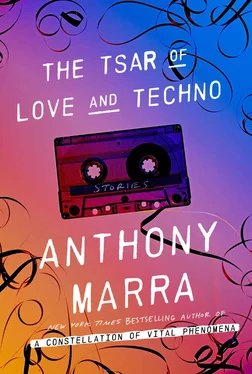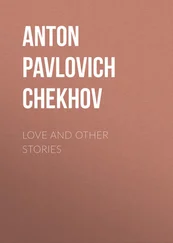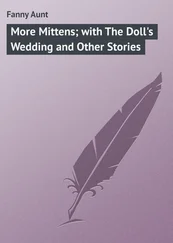“In your heart?”
“No, you dimwit. In an airplane.”
“Why?”
“What else can I do?” A slow sigh of resignation leaked from her. “Let’s be honest, I haven’t been seriously considered for a part in years, and now that I’ve fallen from political favor, I’d be lucky if Deceit Web is still bootlegged. Besides, it’ll be nice for Natasya to grow up outside Moscow. Kirovsk isn’t that bad, is it?”
It’s a poisoned post-apocalyptic hellscape. “It’s a wonderful place to raise a family.”
“You mean it?”
“I don’t lie to anyone”—present company excluded—“You can stay in the museum, if you need to. No one’s lived there since Kolya left.”
She snorted so loud I worried she’d choked. “You are a dear, but no, thank you. Oleg’s lawyers still haven’t seized my dignity. Though no doubt it’s next on their agenda.”
“I went to the Teplov Gallery,” I said, tacking into unclear waters. “I tried to get the number of the people in Grozny you bought the painting from.”
“What ever for?”
“I was thinking I’d talk to them. About the place where Kolya died.”
“A picture’s worth what, a thousand words? More than that, if you’re to judge by the reams of shoddy copy on Lindsay Lohan’s crotch shot. Besides, I gave you the painting so that you could see where he, well, you know.”
“I know, it’s just that…” The sledgehammer of epiphany swung cranium-ward. “It’s just that I was thinking I’d go there.”
“Don’t be a fool.”
Far, far too late.
“I was thinking I’d go there,” I went on, “to the hill where Kolya died. It’s the last place he was. “I’ll go there. I’ll actually do it. I’ll stand where he last stood and see what he last saw.”
“What ever for?” she asked again.
I looked to the two pickle jars. I’d never received Kolya’s remains. I told her I wanted to go there, to the plot of land where he died, and fill a pickle jar with the dirt.
“Well, maybe you should,” she said.
“Really?” I couldn’t recall the last time I’d actually acted on my daydreams.
“What do you want?”
“What kind of question is that?”
“I’m serious, Alexei. The life expectancy of a man from Kirovsk is, what, forty or fifty years? You’ve burned through half of that already. What do you want from the rest?”
“I want to be quotable.”
“What?”
My blush was hot enough to soften the receiver. “I’m studying philology and I don’t even like reading. At least not books. I mean, why read a book when you can sum up the point in a pithy little line? I like sayings, fortune cookies, single-serving packets of wisdom. But you have to be famous or climb Mount Everest or something for people to take you seriously as an aphorist.”
“You want to be a professional aphorist?”
“Well, yes.”
“Jesus, Alexei. You were always a sweet kid, but you’re not a kid. Go to Chechnya. Go somewhere. Do something.”
Turning I would to I did is the grammar of growing up.
6
Kolya’s story collided into Galina’s the day he wandered into the school gymnasium/boiler room for an orientation led by the principal, a fleshy man with a neck like a sea lion’s. Pig-iron pipes mazed over mattresses, creating an avant-garde gymnastics course of perpendicular bars and unbalanced beams. No one from the men’s or women’s gymnastics team had ever made it to the Olympics, not for lack of talent, but because they performed like freewheeling jazz soloists in a sport judged by classicists. The principal punctuated his speech with dull jabs of his forefinger. If occupations were assigned by disposition, he’d be the supreme leader of a volcanic island republic devoid of natural resources. On stiff benches that had once populated the gulag canteen, the assembled fourteen-year-olds slouched forward or back, aged by boredom until they resembled, in posture at least, their grandparents who’d once bruised their backsides on those same seats.
When he finished, the principal goose-stepped from the room to a fanfare playing only in his head. Upperclassmen gymnasts had already begun somersaulting on the hot water pipes. The several dozen first-years had begun to stretch and mill about, but Kolya stayed seated. He didn’t often feel nervous or bashful, but he was new to this school. He’d been booted from the last one and he knew nobody in this class. The seconds ticked by and Kolya knew he had to do something tough or clever, something that would secure his social standing, because every school must have its outcasts and weirdos, and I know from personal experience that there is no escape from that untouchable caste but suicide or matriculation. Kolya sifted through his frozen insides for a loose leak of the courage and charisma that flowed so freely in my presence. Time was running out. Already his classmates had clumped into bantering clusters soon sealed from outsiders with inside jokes. But right there, several benches away, a lanky, densely lashed girl also sat alone.
His gaze climbed her legs. When he reached her eyes, she’d already seen him.
“I’m Kolya,” he managed to say.
“Galina,” she replied. Her lips flattened and curved at the ends like something wet that hadn’t dried right. It was a smile. His chest unzipped from the inside.
SHE sat next to Kolya in the dimly lit history classroom. Built during Stalin’s purges, our school had originally been a prison, and the bars gridding the history classroom windows cast toothy shadows across the warped floorboards. Galina couldn’t sit still. An invisible flame burned beneath her desk chair, too weak to set the wood alight, but strong enough to singe her skin if she sat too long in the same position. She twirled her pencil between her fingers, but her hand-eye coordination was similar to her foot-eye, and it inevitably tumbled to the side of the desk she couldn’t reach. Kolya retrieved it.
“Thanks,” she whispered.
“It’s nothing.”
A peculiar intimacy grew from the daily transaction of recovered pencils. It became a game. The pencil somersaulted from Galina’s slender fingers, while Kolya watched with a throb building at the base of his throat. The front of the room, where the teacher expatiated on the conquests of dead European empires, was as distant as the medieval battlefields themselves. He overlayed his fingerprints on hers, making himself the willing collaborator to any crime in which the pencil might be used. He held it by the point and she accepted it by the rounded rubber eraser, leaving its yellow length between her fingertips and his. As the pencil shortened with each sharpening, Kolya’s fingertips came closer to hers, until one splendid day they touched. On that day, Kolya asked Galina if she wanted to go for a walk.
November winds skewered loose newspaper to bent flagstaffs, imprinted grit on windshields, inscribed the corona of smelters whose furnaces were the sole reason for our life in the Arctic. Clad in heavy layers, Galina looked twice her true width. They sauntered to the center of the Twelve Apostles along the gravel road that lassoed the silvered lapping of Lake Mercury. The gravel had stiffened to a frigid corpse on which Kolya fixed his eyes to avoid the face of the young woman so near he felt her heat signature like a phantom of spring sun.
She told him how much she hated the ballet, how terrible a dancer she was, and Kolya took her mittened hand in his own. He placed his right hand on the small of her back, pressing through the layers until she fell toward him, into him. He made fingerholds of the valleys of her vertebrae.
“ BUM BA-DA-DA DUM BUM, DUM DUM DUM ,” he trumpeted. It took her a moment to find in his atonal exhilaration the melody from the first march of The Nutcracker Suite . By the time she did, she was already cantering, cratering the frost.
Читать дальше












